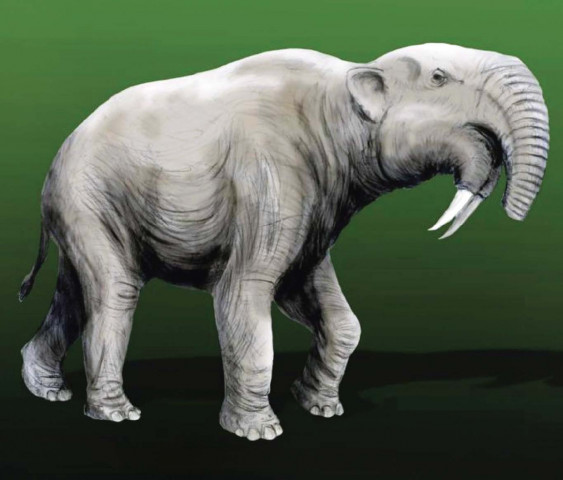14m year-old fossils of ‘terrible beast’
Paleontologists uncovered the remains of a primitive animal species in Chakwal.

14m year-old fossils of ‘terrible beast’
The fossils are reportedly 14 million years old and belong to the primitive animal species which had lower denture with undistributed set of teeth attached to the gums.
This terrible beast is known to have survived between the Miocene epoch (from 25 million to 13 million years ago; appearance of grazing mammals) to the Pleistocene epoch (from two million to 11 thousand years ago; extensive glaciation of the northern hemisphere; the time of human evolution). Its ancestors or descendants can not yet be ascertained due to unavailability of fossil records with which a chain of identification could be testified. But Deinotherium is said to be a prehistoric relative of modern elephants.
Usually the Deinotherium Indicum is associated with Asia. The excavation at the site was conducted under the supervisory guidance of Professor Dr Muhammad Akhtar Chairman Department of Zoology and Registrar University of the Punjab, Lahore. The significance of fossils from the evolutionary point of view is crucial, as it may provide clues about changes in climate and proximate causes of extinction of various species.
Also the petrified bony bits and pieces of dentition of ruminants (Rhinoceros, Giraffids, Suids and Bovids) were discovered from Dhok Bun Ameer Khatoon, Chakwal. Their age is calculated to be more than 8 million years old. This is one of the best discoveries of fossils ever made in Pakistan. Prof Dr Muhammad Akhtar is of the view that the world of paleontology will benefit a lot from this recently uncovered ‘treasure’.
University of the Punjab is the only institution in Pakistan that offers education of Vertebrate Paleontology.
Published in The Express Tribune, October 28th, 2010.



















COMMENTS
Comments are moderated and generally will be posted if they are on-topic and not abusive.
For more information, please see our Comments FAQ